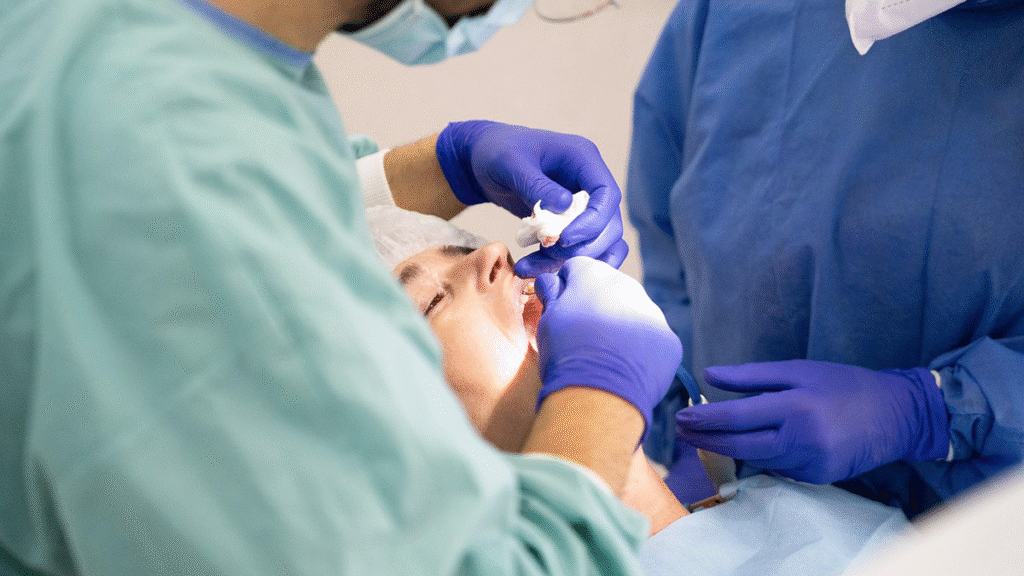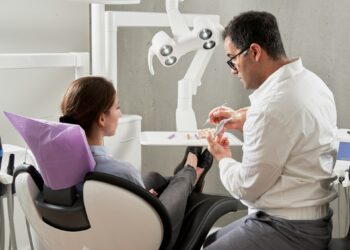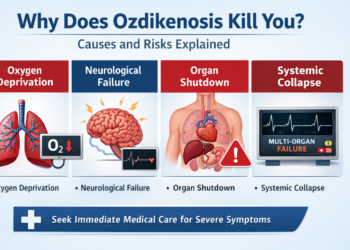
Oral surgery, whether it’s a wisdom tooth extraction or a more complex procedure, marks the beginning of a crucial healing period. Proper aftercare is not just a recommendation; it’s essential for a quick and complication-free recovery. Giving your body the care it needs can significantly reduce pain, minimize the risk of infection, and get you back to your normal routine faster.
Many people feel anxious about the recovery process, but with the right knowledge and preparation, you can navigate it with confidence. This guide will walk you through four essential tips to ensure your healing journey is as smooth and stress-free as possible.
Prioritize rest
The first 24 to 48 hours after your procedure are the most critical for your recovery. Your body needs energy to heal, and the best way to provide that is through rest. Strenuous activities, including heavy lifting or intense exercise, can increase blood flow to the surgical site, which may dislodge the blood clot that is forming. This clot is nature’s bandage, protecting the area from bacteria and debris, and its displacement can lead to a painful condition known as a dry socket.
To avoid this, plan to take it easy for at least a couple of days. Prop your head up with extra pillows when you lie down to help reduce swelling. This elevated position helps drain fluid away from the head and can make you feel more comfortable. While you might be tempted to catch up on chores or work, remember that pushing yourself too soon can set your recovery back. Listen to your body and give it the downtime it needs to mend properly.
Stick to a Soft-Food Diet
Your diet plays a significant role in your recovery. For the first few days, you’ll need to stick to soft foods and liquids to avoid irritating the surgical area. Chewing hard, crunchy, or sticky foods can damage the wound and interfere with healing. Instead, stock your kitchen with items like yogurt, smoothies, mashed potatoes, applesauce, and lukewarm soups. These foods require minimal chewing and are gentle on your mouth.
It’s also important to stay hydrated, but avoid using a straw. The suction created when using a straw can dislodge the crucial blood clot, leading to a dry socket. Drink plenty of water and other cool liquids directly from a glass. Additionally, steer clear of hot beverages and spicy foods, as they can cause irritation and discomfort at the surgical site. A thoughtful diet not only prevents complications but also ensures you’re getting the nutrition your body needs to heal effectively.
Manage Pain and Swelling Effectively
Post-surgical discomfort is a normal part of the healing process, but it can be managed. Your oral surgeon will likely provide specific instructions for pain management, which may include over-the-counter pain relievers or a prescription. It’s best to take your first dose of pain medication before the local anesthetic wears off to stay ahead of the discomfort. Following the prescribed dosage and schedule is key to keeping pain at a manageable level.
Swelling is also a common side effect. Applying an ice pack to the outside of your cheek for 15-20 minutes at a time during the first 24 hours can help reduce inflammation and numb the area. After the first day or two, you can switch to a warm compress to help soothe any lingering soreness and promote blood flow. These simple techniques can make a world of difference in your comfort levels as you recover. Knowing what to expect and having a plan to manage these symptoms can make the recovery period much more tolerable.
Maintain Excellent Oral Hygiene
Keeping your mouth clean after surgery is vital for preventing infection, but it must be done gently. You can typically resume brushing your teeth the night of or the day after your procedure, but be extremely careful to avoid the surgical site. Use a soft-bristled toothbrush and take your time. Do not rinse your mouth vigorously for the first 24 hours to protect the forming blood clot.
After the initial 24-hour period, your surgeon may recommend gentle rinses with a warm saltwater solution (a half teaspoon of salt in a glass of warm water) a few times a day, especially after meals. This helps to clean the area and reduce bacteria without being too harsh. Following the specific hygiene instructions from your provider of oral surgery in High Point, NC, is the best way to ensure the site stays clean and heals properly. Good hygiene is your best defense against infection and a cornerstone of a successful recovery.











